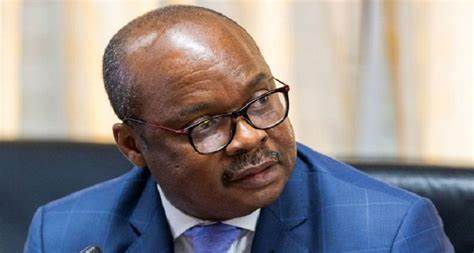The Monetary Policy Committee of the Bank of Ghana will from today, January 23, 2024, begin its 116th meeting to review developments in the Ghanaian economy.
The meeting is coming at a time when there is pressure on the Committee to cut the policy rate by some significant margin due to the consistent decline in inflation.
The policy rate was kept unchanged at 30.0% in November 2023, but inflation eased to 23.2% in December 2023.
Governor of the Bank of Ghana, Dr. Ernest Addison, however, said though his outfit is committed to a tight Monetary Policy stance, the Committee will cut the policy rate when necessary.
The MPC is expected to prioritise the recent International Monetary Fund Board approval of the first review of Ghana’s programme and the $600 million bailout package from the Fund and its impact on the economy.
Already, Fitch Solutions, has stated that it expects the policy rate to go down by 8.0 percentage points in 2024.
“With inflation moderating substantially through 2024, we anticipate that the BoG will embark upon a sizeable monetary easing cycle, cutting the policy rate by a cumulative 800bps to 22.00% by year-end.”
Fitch Solutions added it usually takes about 12 months for interest rate adjustments to affect the real economy due to the lag in monetary transmission mechanisms.
As such, it believes that the Bank of Ghana’s dovish monetary policy stance is unlikely to result in a sharp increase in real loan growth – which has remained in contractionary territory over January to August 2023.
MPC to assess business environment
The MPC will assess the business environment, particularly the business and consumer risk factors.
In the third quarter of 2023, the Bank of Ghana said its high-frequency real sector indicators pointed to continued pick-up in economic activity, although at a moderate pace. The updated Composite Index of Economic Activity (CIEA) contracted at a lower rate of 0.4 percent in September 2023, compared with a sharper contraction of 1.2 percent in the same period of last year.
The main indicators that contributed to the relative improvement in the CIEA were industrial consumption of electricity, private sector contributions to Social Security, and tourist arrivals. The momentum in credit to the private sector, cement sales, and port activity, however, slowed down over the period
Latest Stories
-
GPL 2024/2025: Nations thrash struggling Legon Cities
2 minutes -
Electoral offences have no expiry date, accountability is inevitable – Fifi Kwetey
2 minutes -
Ghanaians to enjoy reliable electricity this Christmas – ECG promises
9 minutes -
Police deny reports of election-related violence in Nsawam Adoagyiri
13 minutes -
‘We’re not brothers; we’ll show you where power lies’ – Dafeamekpor to Afenyo-Markin
16 minutes -
EPA says lead-based paints are dangerous to health, calls for safer alternatives
2 hours -
Queenmother calls on President-elect Mahama to appoint more women in his government
4 hours -
Atletico Madrid beat Barcelona to go top of La Liga
4 hours -
Usyk breaks Fury’s heart with points win in rematch
4 hours -
Ghana-Russia Centre to run Russian language courses in Ghana
10 hours -
The Hidden Costs of Hunger: How food insecurity undermines mental and physical health in the U.S.
10 hours -
18plus4NDC marks 3rd anniversary with victory celebration in Accra
13 hours -
CREMA workshop highlights collaborative efforts to sustain Akata Lagoon
13 hours -
2024/25 Ghana League: Heart of Lions remain top with win over Basake Holy Stars
14 hours -
Black Queens: Nora Hauptle shares cryptic WAFCON preparation message amid future uncertainty
15 hours

